#chen shiang-chyi
Explore tagged Tumblr posts
Text















你那邊幾點 // WHAT TIME IS IT THERE? (2001) dir. TSAI MING-LIANG
23 notes
·
View notes
Text

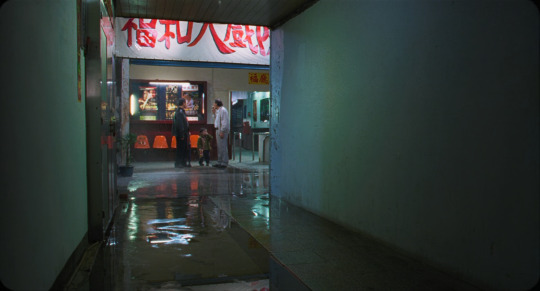



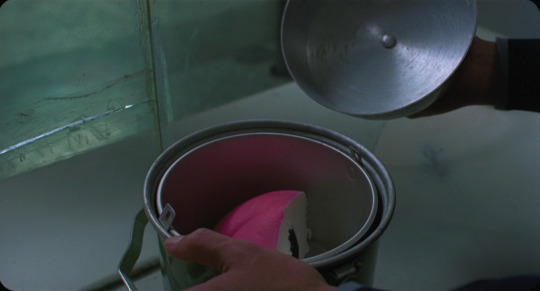
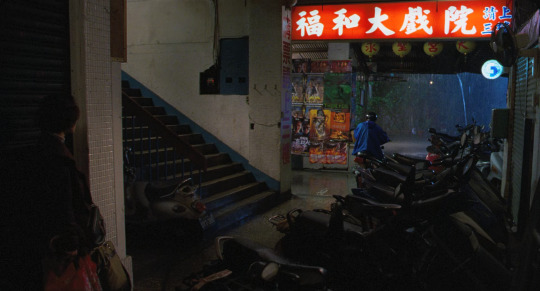
Goodbye, Dragon Inn (2003), dir. Tsai Ming-liang
#goodbye dragon inn#tsai ming liang#lee kang sheng#chen shiang-chyi#film#film stills#filmedit#movies#movie stills#cinema#cinephile#my posts
269 notes
·
View notes
Photo
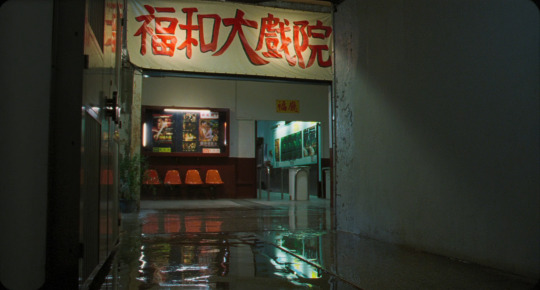
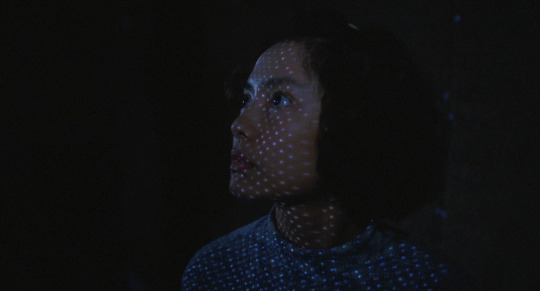
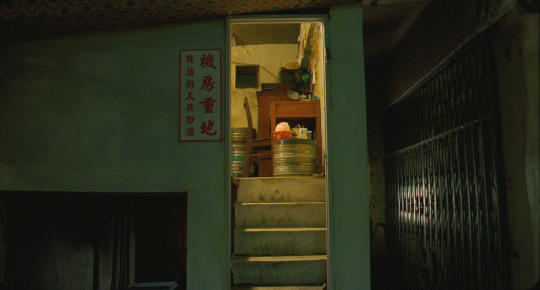
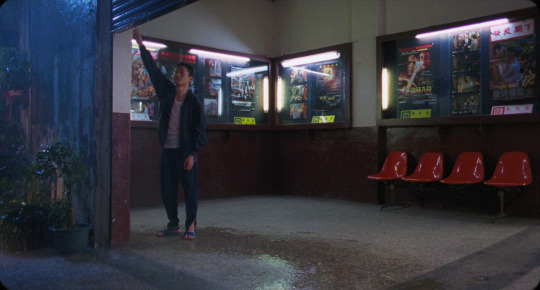

goodbye, dragon inn (2003)
#goodbye dragon inn#film#movie#cinema#art#edit#taiwan#asia#indie#tsai ming-liang#lee kang-sheng#chen shiang-chyi#queue
275 notes
·
View notes
Text

A Confucian Confusion (1994) dir. Edward Yang
43 notes
·
View notes
Text







goodbye, dragon inn (2003) dir. tsai ming-liang
1 note
·
View note
Text
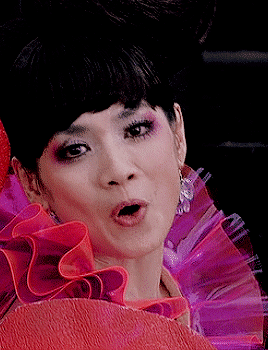
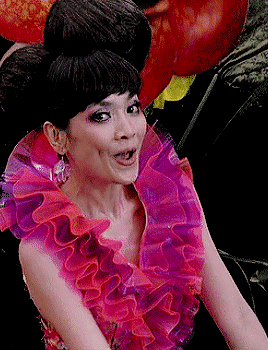
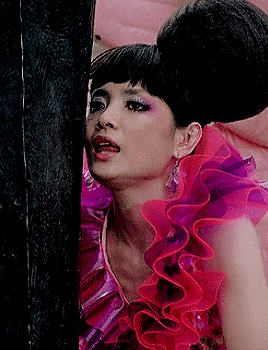

Chen Shiang-chyi in THE WAYWARD CLOUD (天邊一朵雲) | Dir. Tsai Ming-liang, 2005
2 notes
·
View notes
Text

The Wayward Cloud (2005) // dir. Tsai Ming-liang
63 notes
·
View notes
Text






13 notes
·
View notes
Text



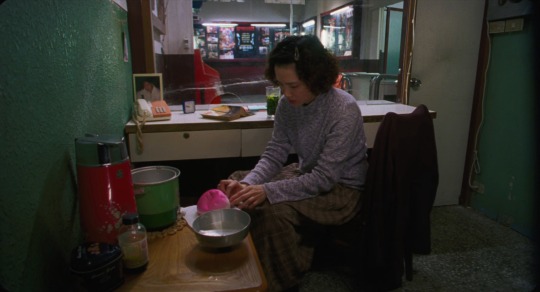
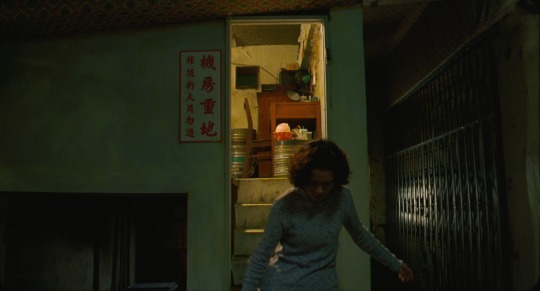
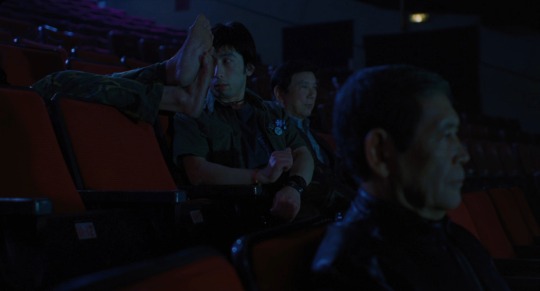

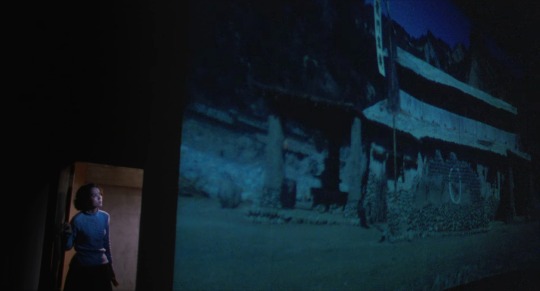
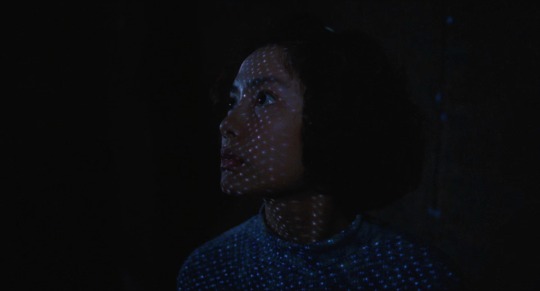
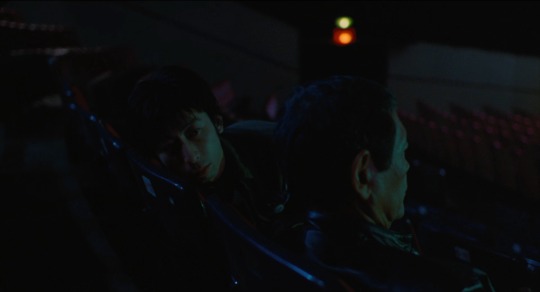



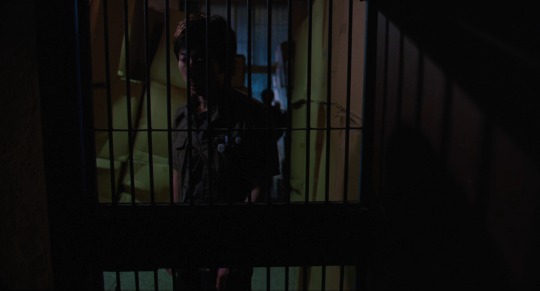
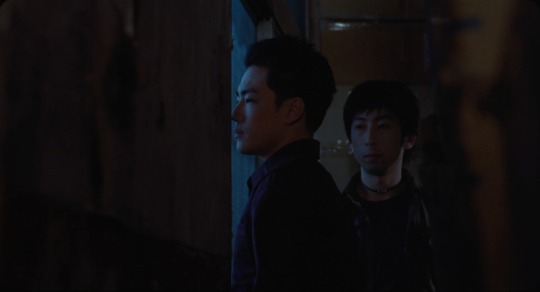
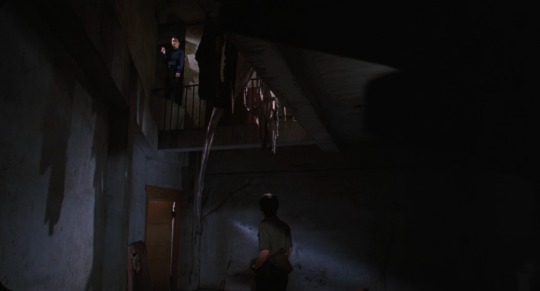



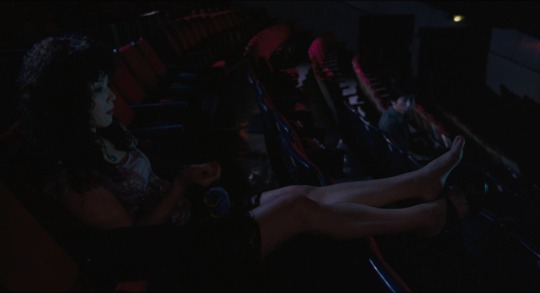
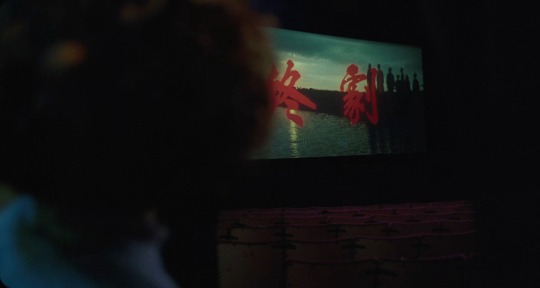
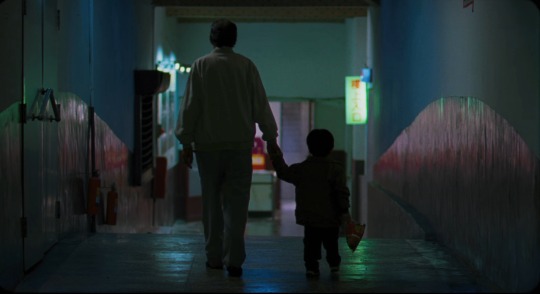

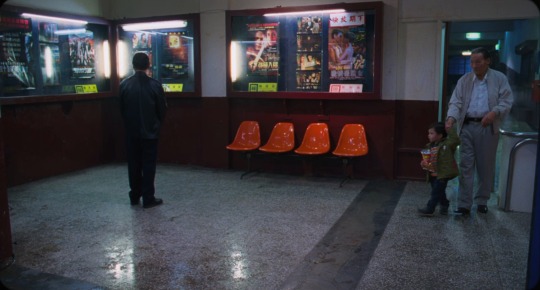

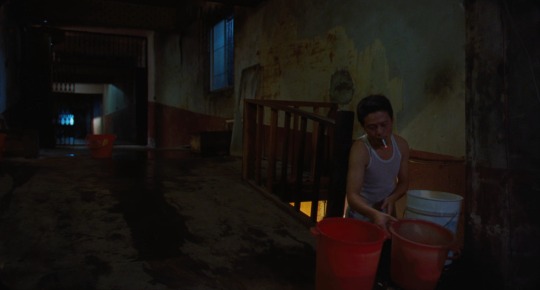




Goodbye, Dragon Inn / 不散 (2003)
Tsai Ming-liang's elegiac masterpiece follows the final showing—of Taiwanese wuxia classic Dragon Inn (1967)—at a failing Taipei movie house, where ghosts, gays, and by-gone legends mingle, all haunting the theater in its final moments of life.
Director: Tsai Ming-liang
Cinematographer: Pen-Jung Liao
Starring: Lee Kang-sheng, Chen Shiang-chyi, Kiyonobu Mitamura, Jun Shih, Miao Tien, Chen Chao-jung, and Yang Kuei-mei
#goodbye dragon inn#不散#2003#tsai ming liang#lee kang sheng#chen shiang chyi#Kiyonobu Mitamura#jun shih#miao tien#chen chao jung#yang kuei mei#taiwanese film#taiwanese cinema#taiwanese movies#slow cinema#2000s cinema#2000s films#2000s movies#queer cinema#queer film
1 note
·
View note
Text
𝓽𝓱𝓮 𝓻𝓲𝓿𝓮𝓻



The River 河流 (1997, dir. Tsai Ming-liang)
Sex in my films is an extremely important element, just as important as eating. What I’m trying to say is that none of their behavior is shameful. […] Sex is something that is very mysterious but at the same time very normal. People may close the door when they do it, but they all do it. And they all close the door when they do. But what is it like when they are doing it? […] How do you masturbate? Or what type of sexual activity do you engage in? All of these are very telling. For instance, in The River, Miao Tien likes young men and they also seem attracted to him, but everyone has their own way of engaging in sex. Their relationship is not based on love and it never will be, but there is something there that they need. […] Why does Lee Kang-sheng have sex with Chen Shiang-chyi in The River? It is not about sex, it is about who they are as people and what is going on inside them. That sexual encounter is actually connected with his neck disorder. Not to say his neck problem is a direct consequence of him having sex, but it is just as painful for him as having intercourse with that girl. So when I feature sex scenes in my films, they are usually devoid of the erotic element. The point is not to get the audience excited or to exploit sex, it is to reveal something much deeper."
Perhaps the single most controversial cinematic moment in your body of work also occurs in The River, with the encounter between Hsiao-kang and Miao Tien in the sauna. Looking back, what are your feelings about that scene, and what did that act of unknowing incest symbolize for you?
In the entire twelve years of my career as a feature filmmaker, the most exciting moment for me was just after shooting that scene. I’m also very proud of Goodbye Dragon Inn, but that scene in The River was the highlight. In virtually all of my films—Rebels of the Neon God, Vive l’Amour, The Hole, What Time Is It There?—I always felt as if all I was doing was carrying out some ideas. But the true excitement of artistic creation really made itself clear during the shooting of The River, and it was all because of that scene. That was truly one of the happiest moments in my filmmaking career. Naturally that scene was also very controversial, but I look at it quite simply. Actually the entire structure of The River is also very simple. All I did was paint a portrait of two people making love, but I told you that they are father and son. So I feel that this film is not just about sexuality, but more important, about identity.[…]The reason that scene is so simple in my mind is that everything eventually returns to where it started. All of the relationships, between father and son, husband and wife, all return to their most basic and primitive nature. Maybe they are nothing but one lonely person, all alone. I wanted to suddenly take away Miao Tien’s and Lee Kang-sheng’s identities. In the space of that sauna they lose their identities as father and son and for that split second, they are but two lonely souls. It is only when you think of their identity and who they really are that you realize how sad it is. Why is it sad? Because had they known who each other was, they never would have reached out to hold each other like that—and naturally they never would have had sex. But the sex is not the point of the scene. I was excited when I shot this scene because I’m sick of people labeling my films as “gay films” or “dysfunctional family films.” My films are not about dysfunctional families and they are not about gays, they are about human beings and the difficulties of being human. They are about the pain of not being able to control your body, your emotions, and your fate. You have to be a father, a husband, the head of a household, or a son or a member of society, and we have no say in the matter; it is imposed on us and everything is controlled by an outside force. But once those restraints are taken away, anything can happen. Embracing on the floor as they make love is the only way they can get close to each other. And the simplicity of that film is why I think I have always been so fond of The River.
Michael Berry, Speaking in Images: Interviews with Contemporary Chinese Filmmakers
7 notes
·
View notes
Text
“I want to stay in your arms, because you are the only one for me.”
黑眼圈 (2006) ‘I Don’t Want to Sleep Alone’.
Directed by Tsai Ming-liang.

Lee Kang-sheng - Norman Atun - Chen Shiang-Chyi
0 notes
Text















天邊一朵雲 // THE WAYWARD CLOUD (2005) dir. TSAI MING-LIANG
22 notes
·
View notes
Text
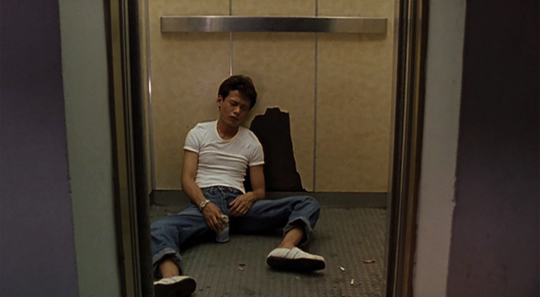

The Hole (1998), dir. Tsai Ming-liang / The Wayward Cloud (2005), dir. Tsai Ming-liang
#the hole#the wayward cloud#tsai ming-liang#lee kang-sheng#chen shiang-chyi#sumomo yozakura#film#film stills#filmedit#movies#movie stills#cinema#cinephile#my posts
24 notes
·
View notes
Text
"Goodbye, Dragon Inn" Review

Yesterday I watched "Goodbye, Dragon Inn" directed by Tsai Ming-liang. I liked it and thought it was a very interesting film.There probably I think there were under a dozen people in the whole film. The whole film takes place inside or just outside of a movie theater in Taiwan, It is a giant old theater with seats for a thousand or more. For the most part you see less than four or five people sitting in the seats. "Dragon Inn" plays throughout the film in the theater. You don't always see the film but you hear the sound track. I think it was a good thing for me that I just watched "Dragon Inn". This showing in the theater is the last movie to be shown in the theater before it closes down for good. Outside the theater rain is coming down heavily and the whole time.
The whole dialog for the film is probably under a couple dozen words. I think there is more dialog coming from the "Dragon Inn". There's many scenes based around gay cruising within the theater. There's one scene with two or three guys standing at urinals next to each other but the restroom probably has thirty or more urinals. They mainly just stand there. Nothing really happens. One guy, who is one of the two or three main characters, may sort of look over a few times but that's about it. It is a rather comic scene.
You really see almost all of the theater and the building it is in. A number of guys are wandering through hallways and smoking and maybe standing next to one another but never doing anything. The previously mentioned guy meets another guy in one hallway or storage area. The other guy is standing there smoking and saying nothing until finally and briefly he says something about there being ghosts in the theater. He also says he's from Japan. As he leaves, the main character says "Sayonara" and bows. Based on a supplementary piece in the Extras on the disc it turns out that this main guy is actually a big fan of Tsai Ming-liang and Tsai Ming-liang has noticed him at several of his movie screenings in Japan. They met and Tsai Ming-liang decided to have him in this film. Also in the film are Miao Tien and Chun Shih, who are two of the main actors in "Golden Dragon". They are sitting and watching "Dragon Inn". They have the longest dialog near the end as they leave the theater. The conversation is just about not many people going to the theater anymore and about seeing themselves in the film. One wonders if they are ghosts or not. The other main character is Shiang-chyi Chen. She is one of the two employees of the theater, the other being the projectionist who we only see briefly near the end of the film. She works at the ticket booth, she cleans the bathrooms and other areas. She does everything except run the projector. She seemingly had polio and wears special shoes and limps through the entire movie. (The actress didn't have polio.) In her walks we see most of the theater. She also seems to have a thing for the projectionist although he doesn't seem to return her feelings. I believe she had no dialog.
As noted by the director and in several reviews I read, you either liked the film or you didn't. Most of his films aren't really that popular with the public although he has received good critical reviews. The film is very slow-paced. The cuts are sharp. The final song played at the end is from the time that "Dragon Inn" was released and certainly has an older period style to it. The lighting and framing of the film are good. Lighting in the theater screening area was difficult.
Anyway, as noted, I liked this film. Maybe it isn't a great film but still enjoyable and interesting to me.
http://www.sensesofcinema.com/2023/cteq/goodbye-dragon-inn-tsai-ming-liang-2003/
0 notes
Text

A Confucian Confusion (1994) dir. Edward Yang
12 notes
·
View notes
Text
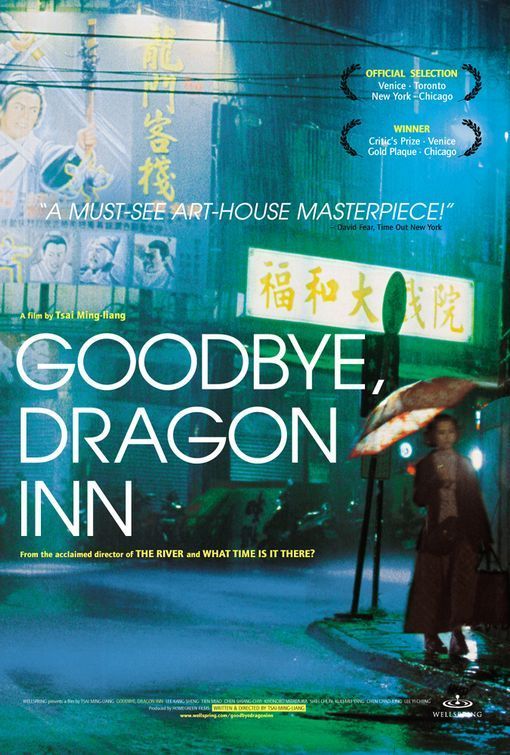
Goodbye, Dragon Inn
(2003) Lee Kang-sheng, Chen Shiang-chyi. dir. Ming-Liang Tsai (Taiwan)
youtube
1 note
·
View note